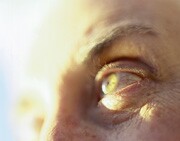
MONDAY, March 24, 2014 (HealthDay News) — Global rates of blindness and poor vision have fallen sharply over the past two decades, especially in rich nations, a new study reveals.
And providing eyeglasses for common vision-loss problems could improve the situation even more, according to the researchers.
The investigators analyzed 243 studies conducted in 190 countries and found that rates of blindness and poor vision fell by 37 percent and 27 percent, respectively, from 1990 to 2010.
In wealthy nations, the prevalence rate of blindness dropped by half, from 3.3 million people (0.2 percent of the population) to 2.7 million people (0.1 percent of the population), the findings showed.
In those countries, the rate of poor vision decreased 38 percent, from 25.4 million people (1.6 percent of the population) to 22.2 million people (1 percent of the population).
In high-income countries, women were more likely than men to be blind or to have poor vision throughout the study period.
The study was published online March 24 in the British Journal of Ophthalmology.
During the 20-year study timeframe, macular degeneration replaced cataracts as the most common cause of blindness, except in central and eastern European nations, according to a journal news release. The most common cause of poor vision remained uncorrected refractive errors such as long- and short-sightedness.
The findings show “that even for the highly developed countries one of the most effective, cheapest, and safest ways of improving vision loss by providing adequate spectacles for correcting refractive errors, is being overlooked,” study author Rupert Bourne, a professor with the vision and eye research unit at Anglia Ruskin University, in Cambridge, England, and colleagues wrote.
They added that the growing number of people with diabetes will have a major effect on eye health worldwide, with as many as 100 million people expected to develop an eye disease called diabetic retinopathy. Of those, about one-third will be at risk of losing their vision.
“Strategies to screen for diabetic retinopathy and provide timely treatment access are critical to prevent this condition from having a greater impact on blindness prevalence in the future,” the researchers concluded.
More information
The U.S. National Eye Institute offers tips for healthy eyes.
Copyright © 2026 HealthDay. All rights reserved.

